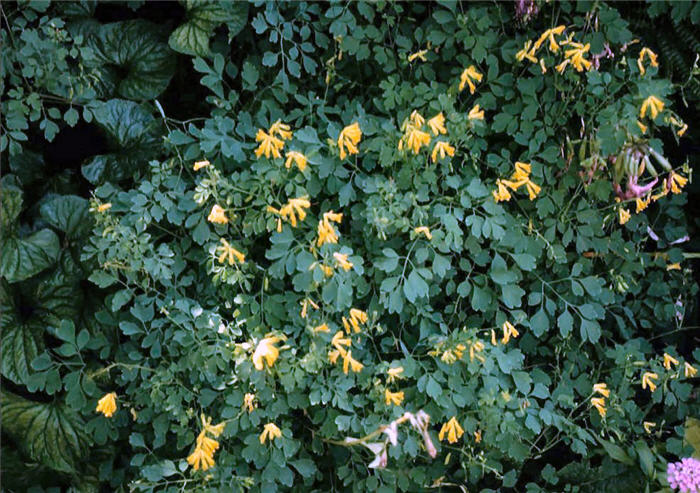| Botanical Name: Corydalis lutea | |
| Common Name: Yellow Corydalis |

-
Anatomy
-
Culture
-
Design
Plant Type
Perennial
Height Range
Under 1', 1-3'
Flower Color
Yellow
Flower Season
Spring, Summer
Leaf Color
Blue Green, Grey Green, Light Green
Bark Color
n/a
Fruit Color
n/a
Fruit Season
n/a
Sun
Full, Half, Shade
Water
Low, Medium, Extra in Summer
Growth Rate
Fast
Soil Type
Sandy, Clay, Loam, Rocky
Soil Condition
Average, Rich, Poor, Well-drained, Dry
Soil pH
Acid, Neutral
Adverse Factors
Invasive
Design Styles
English Cottage, Formal, Japanese, Mediterranean, Ranch, Woodland
Accenting Features
Showy Flowers
Seasonal Interest
Spring, Summer
Location Uses
Perennial Border, Shrub Border, Foundation, Walkways, With Rocks
Special Uses
Filler, Mass Planting, Naturalizing, Small Spaces
Attracts Wildlife
n/a
Information by: Stephanie Duer
Photographer: Myrna Dowsett
Photographer: Myrna Dowsett
-
Description
-
Notes
Corydalis is a wonderful little perennial with ferny, rounded blue-green leaves that form a rounded, somewhat irregular mound about 12 to 15 inches tall and wide. It blooms sporadically from May until September, in clusters of tubular, spurred, yellow flowers. Nice in dry shade gardens, rock gardens, woodland settings, and any shady nook where a little yellow cheer would be appreciated.
Grow in well drained, loamy soil in full sun to mostly shade. If content, it will reseed with abandon, growing in crevices, poking out from beneath rocks or stepping stones, though it doesn't usually overwhelm other plants. though it tolerates regular watering, it also does very well in dry shade settings. During the heat of the summer, if the plant looks tatty, cut it back and it will leaf out, and most probably, bloom again.